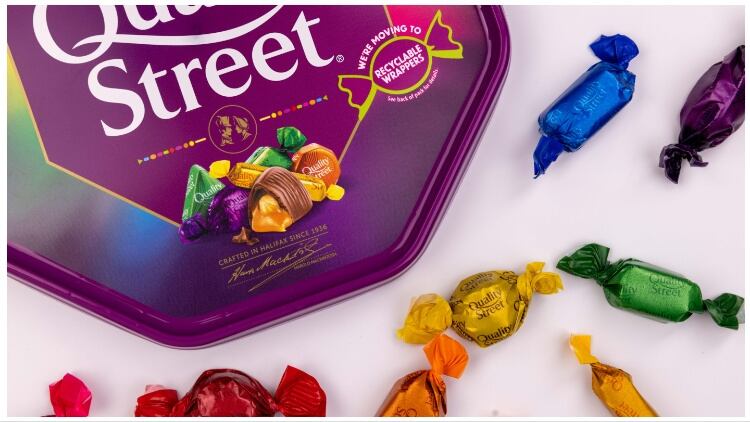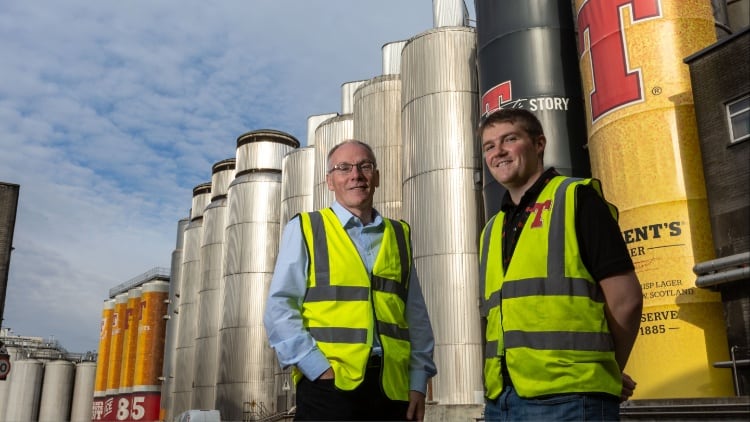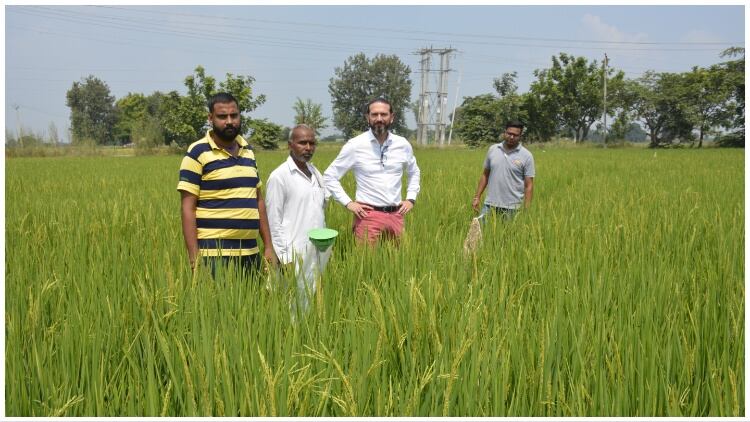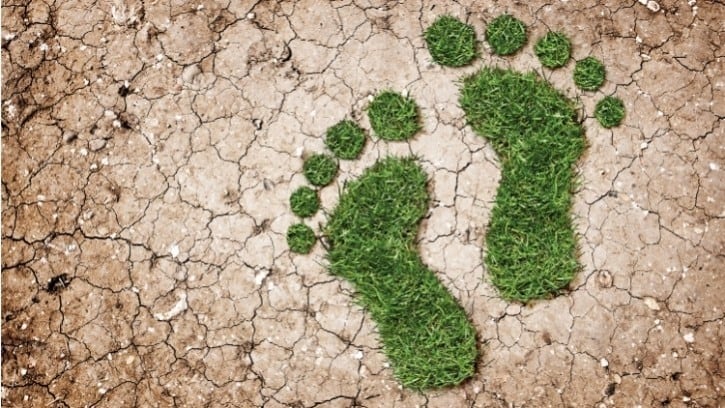The end of last year saw 83.5% of Nestlé’s plastic packaging, globally, designed for recycling.
In the UK and Ireland specifically, for example, the brand transitioned its Quality Street sweets and Smarties to recyclable paper packaging.
Moreover, 41.5% of its total packaging is being made from recycled or renewable content. It is currently using 50% recycled polyethylene (rPE) in the shrink film used across its European factories and is aiming to continuously increase the amount of food-grade recycled polypropylene (rPP) and rPE in many of its brands’ packaging, including Nesquik, KitKat and Purina.
To this end, the company is working with local and national governments, alongside supporting initiatives to develop well-functioning waste collection, sorting and recycling schemes on a global scale.
In the UK, specifically, it announced a £7m investment into a new recycling facility that processes flexible plastics, due to open in Durham later this year.
“The design of, and material used in, our packaging are factors we can directly impact,” commented Antonia Wanner, Nestlé’s head of ESG strategy and deployment. “But we also go beyond that and help build up waste management infrastructure, support harmonised regulation, and engage on the human rights of waste workers.”
Berry high-tech recycling facilities
One of its UK partners is recycling centre Berry Global, which helps the business hit such aforementioned goals within its packaging operations.
Founded in 1967 in the US, Berry now operates across 250+ manufacturing locations, purchasing >65lbs of resin each year.
It is presently on track to secure more than 600m pounds (272,155 tonnes) of recycled content per year by 2025 – around 50% of which comes from Berry’s own recycling facilities.
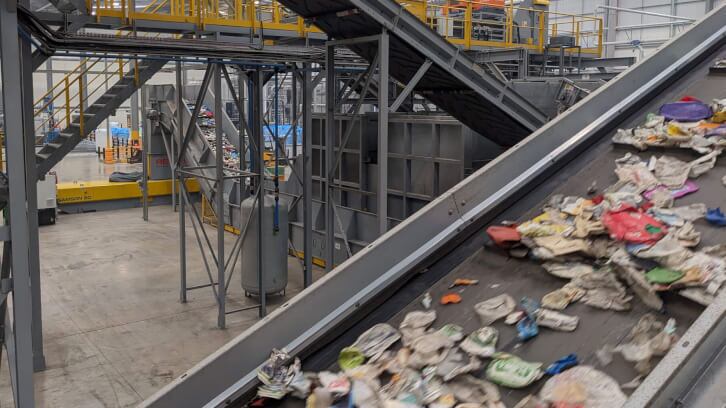
Key to this has been Berry’s own investments into technology. Its Warwickshire facility in Leamington Spa, which Food Manufacture visited recently, utilises its own CleanStream technology. This is said to be the ‘world's first’ closed-loop system to mechanically process domestically recovered household waste polypropylene (PP) back into food-grade packaging.
The site, which opened in 2022, also uses advanced technologies including AI and machine learning, to sort the waste products that come in with incredible precision and prevent contamination.
Together with its UK and European film recycling facilities in Dumfries, Heanor, Rhymney (UK) and Steinfeld (Germany), Berry is now one of the largest plastics recyclers in the continent with the ability to handle around 200,000 tonnes of material annually.
Oversimplified and misunderstood
Speaking with the team at Berry and Nestlé on the visit, it was apparent that while packaging and recycling is crucial, the key to unlocking a sustainable future goes well beyond plastic.
To put this into context, Nestlé’s packaging is only accountable for 10-12% of its overall emissions.
Jodie Roussell, global public affairs lead, packaging & sustainability for Nestlé, explained that the company needs to look at both the ingredients and the package. She described it as a “dual challenge” with both needing to be addressed in relative proportions. But she also noted that “unlocking alternatives” to the systems we have today need new, enabling regulation, alongside governments advancing with plans to decarbonise other areas, such as transportation.
“It’s part of this broader shift to decarbonise power, heat, water sterilisation – all kinds of technologies used at an industrial scale,” she pointed out.
Meanwhile, Berry’s Mike Baxter underlined the importance of not oversimplifying the topic of packaging.
Plastic has often been subjected to villainization, but in reality serves a critical role in food preservation.
Polypropylene, which Berry’s Leamington Spa facility recycles, is a widely used plastic for food and non-food applications. It is versatile in nature, offering brands an affordable and safe solution for packaging and food service applications. It is also said to have the lowest carbon footprint when compared to other substrates, according to S&P Trucost.
With food waste accountable for an estimated third of global greenhouse gas emissions and the ability to repurpose certain plastics within a closed loop system, the generalisation behind plastic can surely be put to bed?
And for those who disagree, Baxter said he welcomes “a debate on packaging, as long as it’s scientifically based”.

